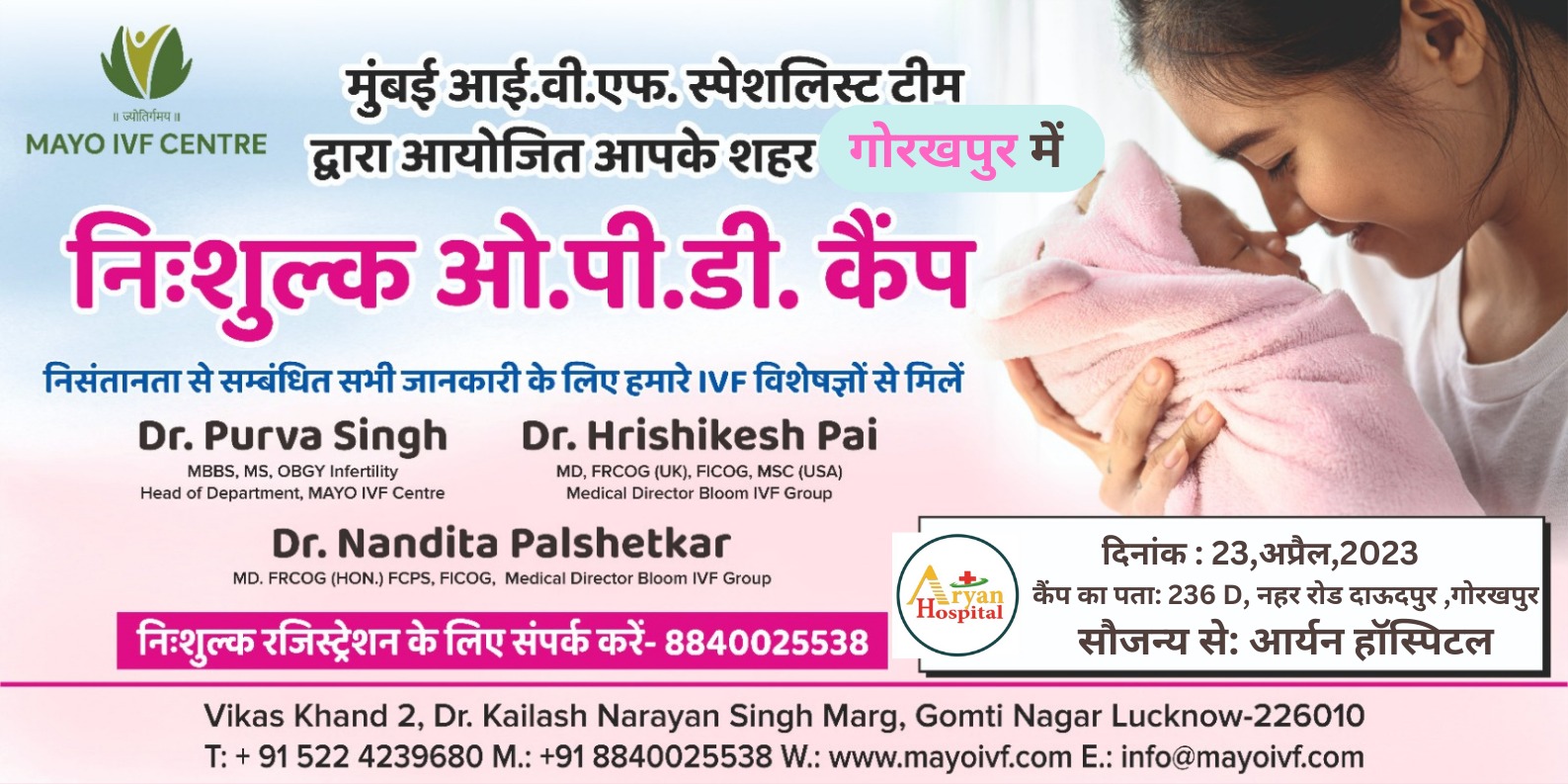
Infertility is a cause of concern for many young couples. When medical science has advanced so much that it can provide us with higher life expectancy and lower mortality rates, it is somewhat expected to help with this as well.
Over time, many treatments and medications have developed to enable couples to have children. Their success depends on the cause of infertility, medical history, genetics, lifestyles and many more factors.
Some common examples of fertility boosters: recording menstrual cycle, monitoring evaluation, taking prenatal vitamin supplements, etc.
FEMALE INFERTILITY
The success of a fertility treatment depends on various factors:
- The cause of infertility.
- The woman’s history of previous pregnancies.
- Her age.
- The time for which she has had fertility issues.
The chances of fertility treatments to succeed are 50%. If infertility is caused due to ovulation related problems, the odds that a woman can get pregnant are higher than in other cases.
On the other hand, the treatment is least likely to produce results if infertility is caused because of damage to fallopian tubes or severe endometriosis. In cases where it is due to hormonal imbalances (such as in the case of PCOS), the treatment eliminates the cause.
Can female infertility be treated with drugs and medications?
Yes, several drugs are available in the market for this purpose. They usually help stimulate ovulation which, in turn, helps the woman being treated to get pregnant.
|
NAME |
IMMEDIATE EFFECT |
TIME OF DOSAGE |
SUCCESS RATE |
ADDITIONAL DETAILS |
||
|---|---|---|---|---|---|---|
|
Clomiphene OR Clomiphene Citrate |
It causes the body to make more follicle-stimulating hormone (FSH) and luteinizing hormone (LH) that cause eggs to mature in the ovaries, that is, it stimulates ovulation. |
It is taken at the beginning of the menstrual cycle. |
Clomiphene causes ovulation in 80% of the cases half of which went on to become pregnant. It also caused 23% of couples with unexplained infertility to get pregnant. |
It increases the risk of multiple pregnancies (10% for twins; 1% for triplets). |
||
|
Letrozole |
It decreases the amount of estrogen secretion in females, that is, stimulates ovulation. |
It is administered for five days towards the end of the cycle. |
After the dosage of letrozole, 19% of couples with unexplained infertility went on to get pregnant. |
It is more effective than clomiphene for infertility caused due to PCOS. |
||
|
Gonadotropin and human Chorionic Gonadotropin (hCG) |
These hormones cause the growth of eggs in the ovaries, thus, stimulating ovulation. |
These hormones are injected for 7-12 days during the early part of the cycle. |
Gonadotropin injections result in pregnancy in 60-70% of the cases. |
30% of couples who conceived using this method had multiple births of which two-thirds had twins. |
||
|
Bromocriptine or Cabergoline |
These pills reduce prolactin levels in women. Prolactin is a hormone that interferes with ovulation. |
Cabergoline should be taken orally as and when advised by a qualified doctor. |
Bromocriptine allowed 90% of the women to achieve normal prolactin levels of which 85% ovulate. |
|||
|
Metformin |
It is used to treat insulin resistance which further helps with ovulation. It is widely used by women suffering from PCOD. |
Metformin should be taken as and when directed by the doctor. |
Metformin’s effects on improving the chances of pregnancy in women suffering from PCOD is widely acknowledged. |
It is administered to women suffering from PCOD while they undergo in-vitro fertilization (IVF). |
||
What if the Medications fail?
- Surgery can be performed to repair or remove the blockage of fallopian tubes if that is the reason for infertility. However, the success rate here is only 20%. Also, it may cause tubal pregnancy (a kind of ectopic pregnancy). A tubal pregnancy is when the fertilized egg implants and grows inside the fallopian tubes. If not removed on time, it can cause damage to the nearby organs.
- A specialized doctor can treat endometriosis and/or submucosal fibroids by laparoscopic surgery. Laparoscopic ovarian drilling can be used for patients suffering from polycystic ovary syndrome (PCOD).
- Surgeries can be effective against uterine fibroids, polyps, or scarring.
MALE INFERTILITY
On average, males contribute to nearly half of the total cases of infertility. The major factors that lead to this situation are –
- Hormonal imbalances
- Hereditary disorders
- Blocked epididymis that prevents the normal passage of sperms
- Erectile dysfunction
Can medications help to treat male infertility?
Yes, medications may help to better the condition if it is caused by hormonal imbalances. Gonadotropin treatment, antibiotics and some other medicines can be taken on the advice of a qualified doctor.
Is there any surgery to correct epididymal blockage?
A qualified doctor can fix epididymal blockage by surgery. It can also repair varicose veins in testicles and improve the quality of sperms.
ASSISTED REPRODUCTIVE TECHNOLOGY (ART)
Assisted reproductive technology involves procedures which aim at achieving pregnancy. If none of the methods to reduce infertility works, a couple opts for these procedures. However, it must be kept in mind that chances of success are very less here.
Intra-Uterine Insemination (IUI)
Artificial insemination, or the intrauterine insemination, involves inserting sperms into a woman’s vagina via a thin tube that is passed through the cervix.
This method is useful in the following scenarios –
- Men having low sperm counts and/or mobility.
- Women having defects on cervix or scarring on the vulva.
- Men not being able to get erections or suffering retrograde ejaculation.
- Couples facing difficulty having sexual intercourse.
With the right treatment, the success rate can be as high as 20%.
In Vitro Fertilization (IVF)
In vitro fertilization refers to fertilization in ‘glass’. Here, eggs and sperms are taken from the bodies of the could-be parents and incubated in a petri dish. The embryo is then placed in the body of the female parent. It should implant itself in 6-10 days after retrieval.
Sometimes, they are frozen and thawed at a later date for transfer. This is done usually when fresh embryos fail to stick to the body of the mother.
What if all the methods have failed?
Third Party-Assisted ART
When infertility treatments and ART fail, couples can achieve pregnancy by using a third party for assistance. Though the cost is higher and the probability of success less, this method has shown commendable results in the past. It is developing itself with time.
Third-party assistance can be in the form of –
- Egg Donation – If due to pre-specified condition, the female partner isn’t able to produce healthy ovum or is a carrier of a genetic disorder, egg donation may prove to be a viable solution. A third person donates eggs to the couple which are then fertilized by the could-be male parent’s sperm. The incubated cell (embryo) is then implanted inside the female parent’s uterus for growth and development.
- Sperm Donation – This is the most widely used method of ART with the help of a third party. If a man doesn’t produce enough sperms or has a genetic disease, sperm donation is the method used. Some women who want to be mothers without the involvement of a male partner receive sperms.
- Surrogates and Gestational Carriers – If a woman is unable to carry a baby, the couple choose a surrogate. The male sperm is inserted in the third person who then carries the baby. This method is used when the could – be mother’s egg isn’t healthy enough. Also, an embryo incubated by the parents can be implanted in the gestational carrier.
- Embryo Donation – When having biological children is not feasible or advisable for a couple, the female member receives an embryo donated by some other people. They are usually the families who have undergone IVF and donated their remaining embryos.
Are There any Home Remedies to Treat Infertility?
Sadly, no; there are no home remedies to cure infertility. However, there are ways to boost fertility. If a couple cannot have babies due to hormonal problems of one or both the partners, improving diet and exercising regularly can lead to huge benefits.
This is true especially in case of women suffering from PCOS. Proper diet varies from person to person. Depending on your body weight, lifestyle, genetic factor and medical as well as family history, a doctor can recommend you the best practice.
Can Fertility Drugs Increase the Chances of Cancer?
Any drug that stimulates the production of cells may lead to cancerous growths. Many recent studies have focused on the increasing risks of breast, endometrial and ovarian cancer in women consuming infertility-treatment medicines.
However, these are claimed to have their limitations. Moreover, most studies don’t show a significant increase in the risks, except for the relative increase in that of borderline ovarian cancer.
REFERENCE LINKS
- https://www.nichd.nih.gov/health/topics/infertility/conditioninfo/treatments/treatments-men
- https://www.nichd.nih.gov/health/topics/infertility/conditioninfo/treatments/treatments-women#f2
- https://www.nichd.nih.gov/health/topics/infertility/conditioninfo/treatments/art
- https://www.nhs.uk/conditions/infertility/treatment/
- https://www.ncbi.nlm.nih.gov/pmc/articles/PMC6546052/
- https://www.ncbi.nlm.nih.gov/pmc/articles/PMC5551049/
By -
Dr. Ruchika Singh
14-April-2023



